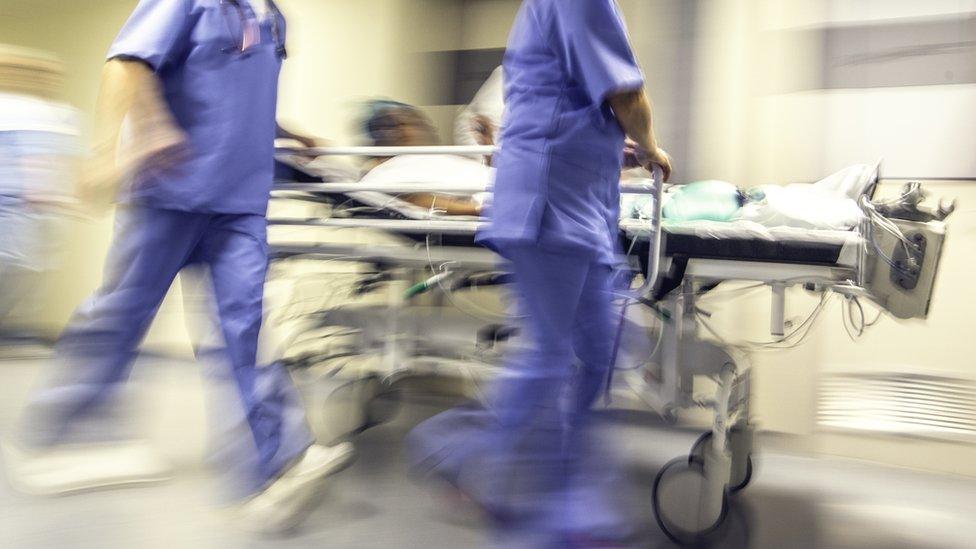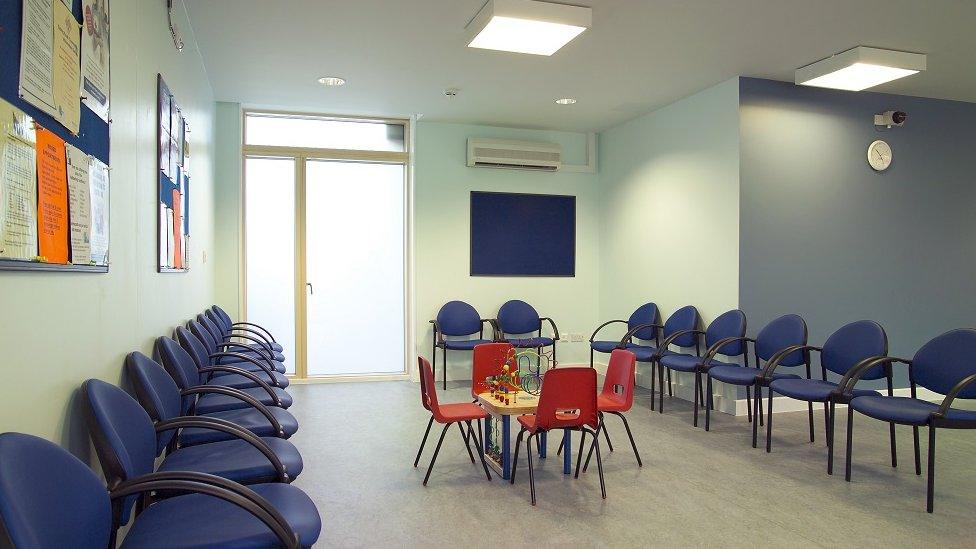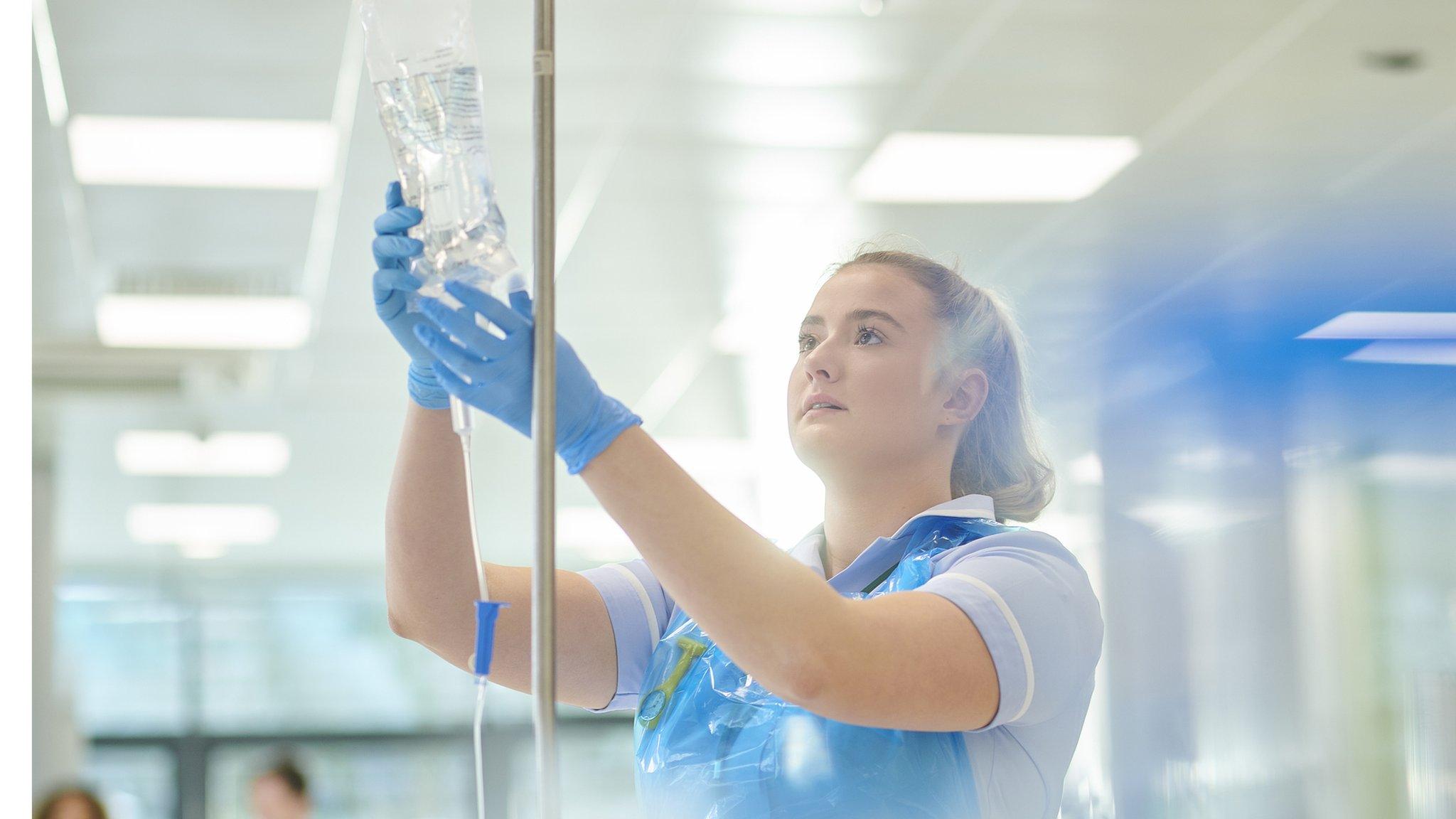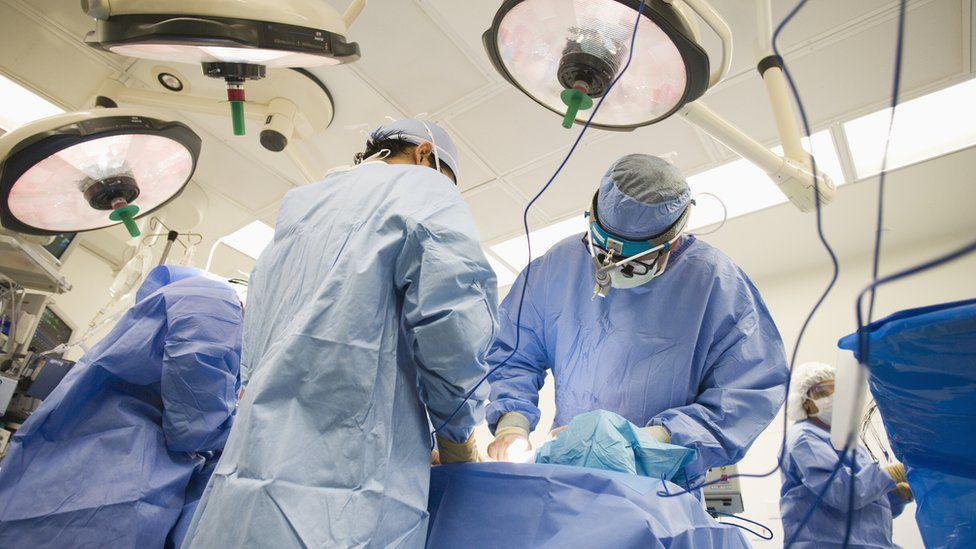NI health service 'beyond crisis', Westminster committee hears
- Published

The Royal College of Nursing's Dolores McCormick said the health service had "fallen off the cliff edge"
The state of Northern Ireland's health service is "beyond crisis", a Westminster Committee has heard.
MPs on the NI Affairs Committee are carrying out an inquiry into the funding and delivery of public services in Northern Ireland.
On Tuesday, they heard about the conditions faced by nurses, doctors and surgeons and the impact on services.
The Royal College of Nursing's Dolores McCormick said the health service had "fallen off the cliff edge".
Ms McCormick told the committee that hospitals and the community were facing incredible pressures".
She added that nurses striving to deliver care which they felt was not at the level they wanted was adding to "moral distress".
Outlining the pressures on waiting lists, Prof Mark Taylor, Northern Ireland Director at the Royal College of Surgeons, said 122,000 patients were waiting for surgery with 378,400 waiting to see a consultant for the first time.
Prof Taylor said the difficulty with the current budget and particularly reducing money to address waiting initiatives was that it would "add to the burden".
He explained to the MPs that orthopaedic surgeons in Northern Ireland were seeing patients who they knew they would "never be able to give them the treatment that they are designed to give them".
"An 80-year-old person waiting five to seven years for a hip - they will not get that hip replacement," he said.
'Culture of using agency staff'
The Northern Ireland Chair at the British Medical Association (BMA), Dr Tom Black, said to put matters in context, while in England hard work was being done on 18-month waiting lists, in Northern Ireland it was eight-year waiting lists - or 96 months.
He said people were going privately, some were going to the Republic of Ireland.
Asked by DUP MP Jim Shannon about nurses' pay and the cost of agency staff, Ms McCormick referred to approximately 3,000 nursing vacancies and said that to plug gaps a "culture of using agency staff had crept in".
She said that nurses needed to be paid fairly and harder work was needed to retain them.

The South Eastern Trust figures show appointments not attended in four months cost the trust about £90,000
On workforce, Dr Black said that there had been a failure over the last decade to train enough GPs; he also said that there was a "cliff edge of a huge problem" when it came to Sláintecare contracts, the investment programme in the Republic of Ireland.
He said that the GMC Report of October 2022 showed that the number one destination for doctors was Australia, with the Republic of Ireland in second place.
"Nearly 400 doctors left the GMC register last year."
Meanwhile, it has emerged that patients who fail to turn up for surgical day case procedures across Northern Ireland's five health trusts are costing the health service thousands of pounds.
Over a 10-month period in the South Eastern area 14,000 patients did not attend or cancelled review appointments on the day they were due to turn up.
Assistant Director of Elective Surgery at the South Eastern Trust Christine Allam said it was "frustrating".
The South Eastern Trust review showed that between April 2022 and January 2023, 7,755 people did not attend or cancelled new outpatient appointments on the day.
During the same period, 14,003 or 10% of patients did not show for review appointments.
On Monday, the Department of Health's Permanent Secretary, Peter May, outlined the financial pressures for the year ahead.
He highlighted the need to make savings, but also said a reduction in cancellations and did not attends (DNAs) would go towards the trusts' attempts to save money.
Waiting lists
Ms Allam said the situation was "frustrating for those patients who are waiting to be seen".
"Those slots where people don't turn up are lost capacity because we haven't been given notice - and this only lengthens the waiting lists," she added.
Ms Allam told the BBC's Evening Extra programme the problem was costly for the trust.
"For the regional day procedure centre in Lagan Valley, in the last four months, we've had a total of 89 patients who have not attended on the day for their surgical procedure or have cancelled on the day.
"For every day case procedure, on average, it costs us £1,028.
"So for those 89 patients, over that four month period, it cost us nearly £100,000," she added.
Ms Allam said it was particularly disappointing as people had agreed their appointments in advance by telephone.
"What we are asking people to do is to ring us to let us know that they won't be attending so we can offer that appointment to someone else can avail of that slot," she said.
Related topics
- Published24 May 2022

- Published19 May 2022

- Published10 March 2022
